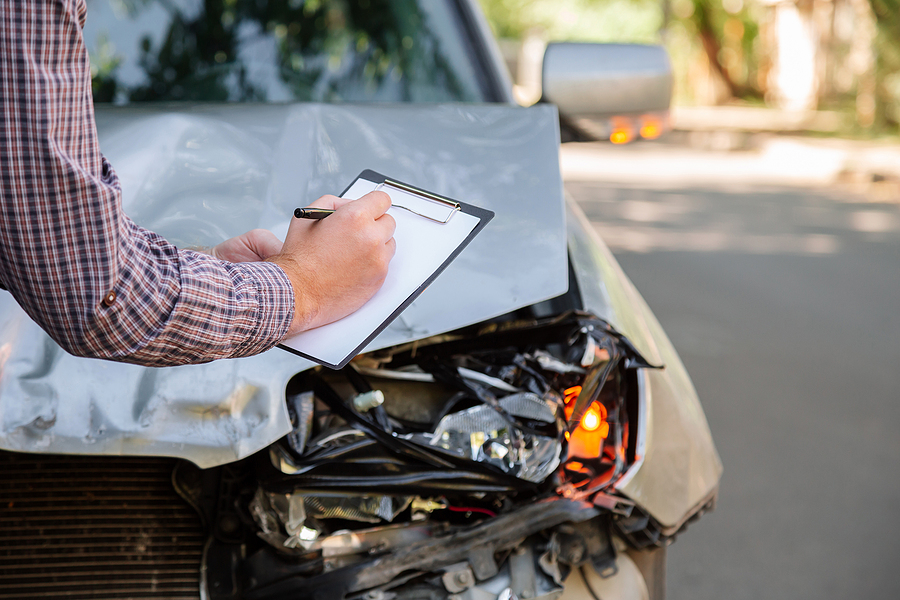A typical Texas DWI (Driving While Intoxicated) case where no one was hurt will result in misdemeanor charges. However, if a DWI accident causes another person’s death or serious injury, it will result in felony charges. You could end up being charged with intoxication assault or intoxication manslaughter. A DWI assault or death must be taken very seriously.
If you or a loved one are in this situation, you should reach out to a local Frisco criminal defense attorney. Philip D. Ray is an experienced attorney that aggressively defends individuals facing these charges of DWI assault or death.

What is Intoxication Assault in Texas?
According to Texas Penal Code § 49.07, an individual can be convicted of intoxication assault if they operated a motor vehicle while intoxicated in a public place, causing serious bodily injury to another person. Texas law defines serious bodily injury as any injury that “creates a substantial risk of death or that causes serious permanent disfigurement or protracted loss or impairment of the function of any bodily member or organ.”
It does not matter if the person injured was a passenger in your car, riding in another vehicle, or a pedestrian.
What are the Penalties for Intoxication Assault in Texas?
In general, intoxication assault will be charged as a third-degree felony punishable by a prison sentence between two and ten years and a fine of up to $10,000.
However, depending on the severity of the injury and who was injured, the penalties can be enhanced to a second-degree felony punishable by two to twenty years in prison and a fine of up to $10,000. For example, charges will be enhanced if the injury results in a vegetative state or the individual injured was a peace officer, firefighter, or emergency medical personnel in the line of duty.
In addition to fines and jail time, a first intoxication assault could result in the following consequences:
• Suspension of your driver’s license from 90 days to one year;
• Community service;
• Installation of an interlock device;
• Participation in an approved alcohol or drug education program; and
• Court costs and fees.
What is Intoxication Manslaughter in Texas?
Under Texas Penal Code § 49.08, an individual commits intoxication manslaughter when they operate a motor vehicle while intoxicated in a public place and cause the death of another person by accident or mistake.
What are the Penalties for Intoxication Manslaughter in Texas?
At a minimum, an intoxication manslaughter charge carries a second-degree felony charge punishable by two to twenty years in prison and a fine of up to $10,000. If any of the following factors apply to your case, you could face a longer prison sentence:
• A blood alcohol concentration (BAC) of 0.15 or above;
• Prior DWI, intoxication assault, or intoxication manslaughter convictions;
• The victim was a police officer, firefighter, or other first responders;
• There was a minor child (under age 15) in the vehicle; or
• There was an open container of alcohol in the vehicle.
Similar to an intoxication assault, a conviction of intoxication manslaughter can result in license suspension, installation of an ignition locking device; court-ordered counseling, rehabilitation, or alcohol education courses; community service; and court costs and fees.
What are Defenses to Intoxication Assault or Intoxication Manslaughter in Texas?
An intoxication assault or manslaughter arrest does not need to result in a conviction. You should contact a qualified criminal defense attorney as soon as possible so they can provide the strongest defense against charges of a DWI assault or death. Some examples of defenses that your attorney may raise include:
• You were not legally intoxicated. Your attorney can argue that you were not legally intoxicated. Typically, your attorney will argue that the blood or breath test was improperly administered or the result was inaccurate.
• Your constitutional rights were violated. Under the constitution, you are protected from unlawful search and seizures. If law enforcement acted inappropriately, your attorney can argue that evidence should be suppressed.
• You did not cause the accident. There must be a direct causal link between your intoxicated driving and the injuries or death. You cannot be convicted if the crash was unrelated to your intoxication. For example, your attorney could argue that the accident was caused by the other driver, a vehicle defect, or the road conditions.
Speak to an Experienced Frisco Criminal Defense Attorney
If you or someone you know is facing intoxication assault or intoxication manslaughter charges, you should immediately reach out to a local Frisco criminal defense attorney. Philip D. Ray is an experienced criminal attorney and former prosecutor who will provide you with a skilled and aggressive defense. He has years of experience defending individuals against DWI charges in the Dallas-Fort Worth area. Call The Law Offices of Philip D. Ray today at (469) 588-6770
for a consultation.
